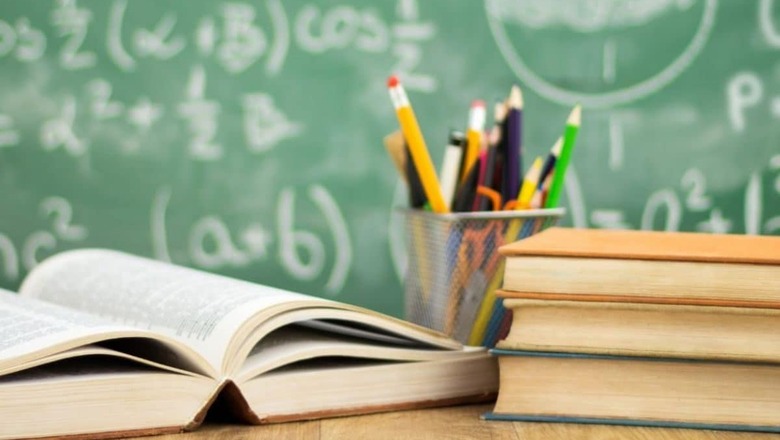
views
‘Phir betalawa usi dadh pe (Again Baitalawa-ghost is on the same branch of tree)’. There is popular saying in Indian country side which emerged from the famous folk story of ‘Vikram and betal’, in which after long persuasion, the same question returns. The same is happening with the National Council of Educational Research and Training (NCERT) rationalisation debate going on in India.
The summary of the debate is that after Covid crisis, NCERT rationalised its textbooks to reduce the burden of schoolgoing students. In this process, they dropped some content. The NCERT explained repeatedly that it has been done to reduce the burden on young students and make the textbooks more relevant to changing times. A group of scholars, who are critical of the Bharatiya Janata Party (BJP), are attacking the NCERT and National Democratic Alliance (NDA) government for dropping a few crucial sections of school textbooks such as social movement, peasant movement and reframing a few paras to dilute important moments of political history.
Another group of educational administrators and scholars have come forward to defend the NCERT and its intellectual autonomy, comprising UGC chairman, VC-JNU, ICSSR, Member secretary and other social scientists. The war in the media is going on at repeated intervals.
Why do NCERT textbooks generate such kind of debates? Why do political forces enter such debates? Pedagogical material, which is basically educational, becomes the target of politicians of various political parties. However, changes in textbooks and their rationalisation is a routine process in most countries in the world. But it is also true that in some countries such as Hungary, Poland, etc., it led to debates which rarely took a political turn. In India, politics is so pervasive that the Opposition parties use these debates to strengthen their political arguments. The Left, Congress and other regional parties such as the Samajwadi Party, Rastriya Janata Dal, etc. that are against the party in power enter such debates.
On most occasions, political motives either come through politicians or academicians-turned-politicians through issues such as representation of movements of social groups such as peasants, Dalits, etc. The political motive is to transform an ‘educational act’ into a political act. They raise the issue of representation in textbooks as identity representation, which helps them in the long run to mobilise social groups to serve their political interest. They forget the notion of educational and social ethics.
We need to evolve a socio-ethical narrative which may give respect to the identities of every social group and may weave each other together, but not fracture them. Identities, without context and development visions, may be harmful for everyone and also for the social group we want to empower through their identity representation in the long run. It is true that education and textbooks create a symbolic capital as defined by Pierre Bourdieu, but this symbolic capital should not be always used for political interest. In fact, the idea of thinking of our society only in relation to the present and past, but not the future, makes us myopic.
In the educational representation argument, some advocate caste as an educational fact. I read a pamphlet evolved by a radical left organization, in which they argued for maintaining the name of the caste of Nathuram Godse in NCERT textbooks.
Is it ethical or constitutionally moral to fight to maintain the caste name in a textbook that will shape up young minds? Just to counter the NCERT, are we going to propose a textbook which may enthuse conflicted consciousness among children.
We have entered a new social era of an aspirational New India. The New India needs textbooks and pedagogical resources which may prepare a human workforce that responds to its times. In this context, textbooks should carry impressions of changing times, sensitivity, creativity and innovativeness as outlined in the New Education Policy 2020.
We need to see how we can protect our educational capital from being converted into a political capital.
However, it is tougher difficult when parliamentary elections of 2024 are near and political forces are anxiously searching for issues for political and electoral mobilisation.
The writer is a Professor and Director at GB Pant Social Science Institute, Prayagraj, and author of ‘Republic of Hindutva’. The views expressed in this article are those of the author and do not represent the stand of this publication.




















Comments
0 comment